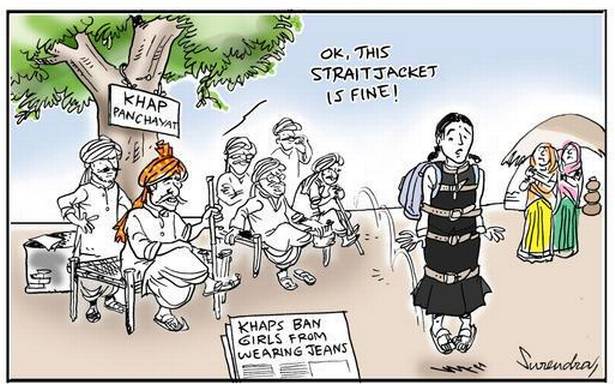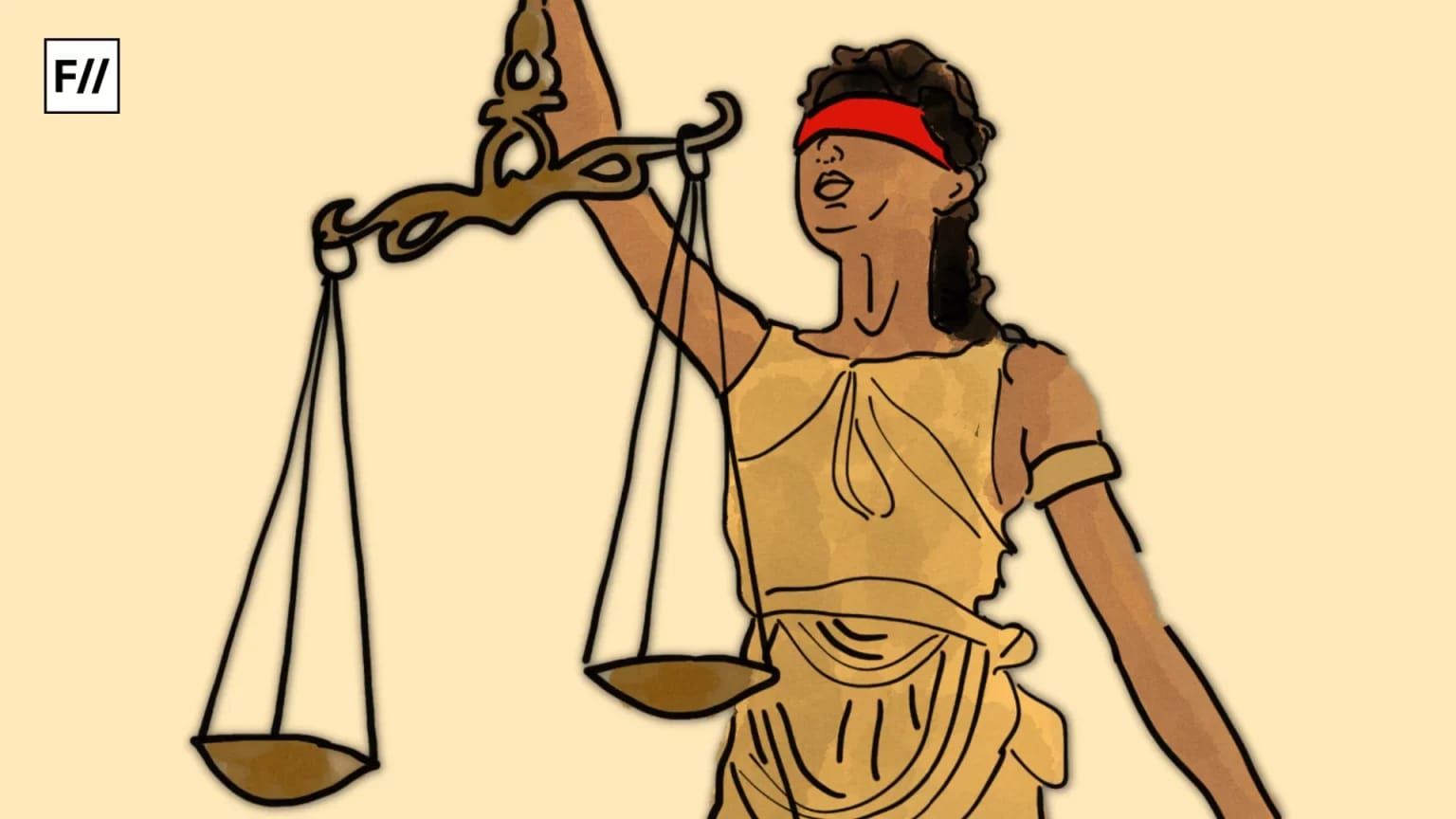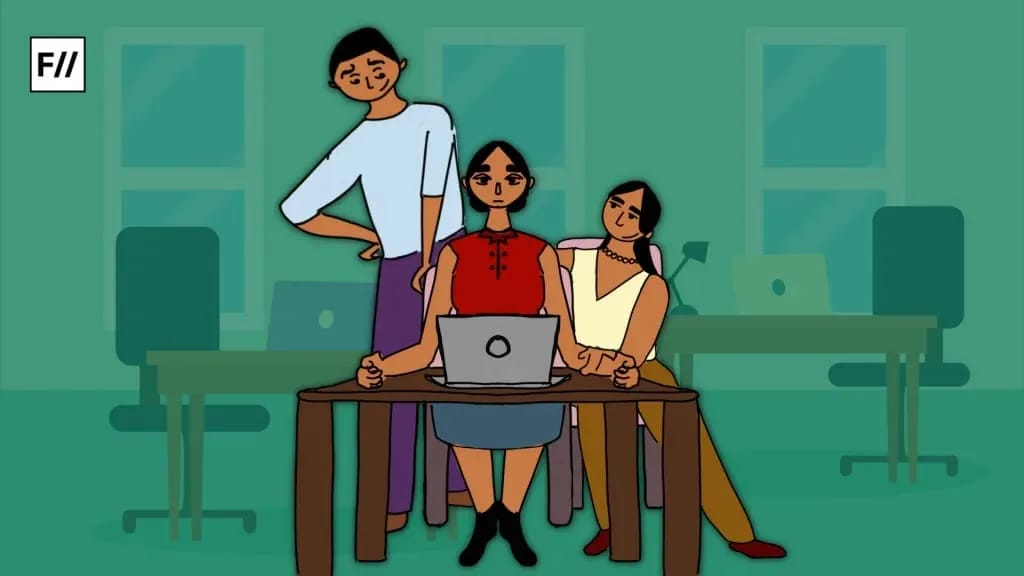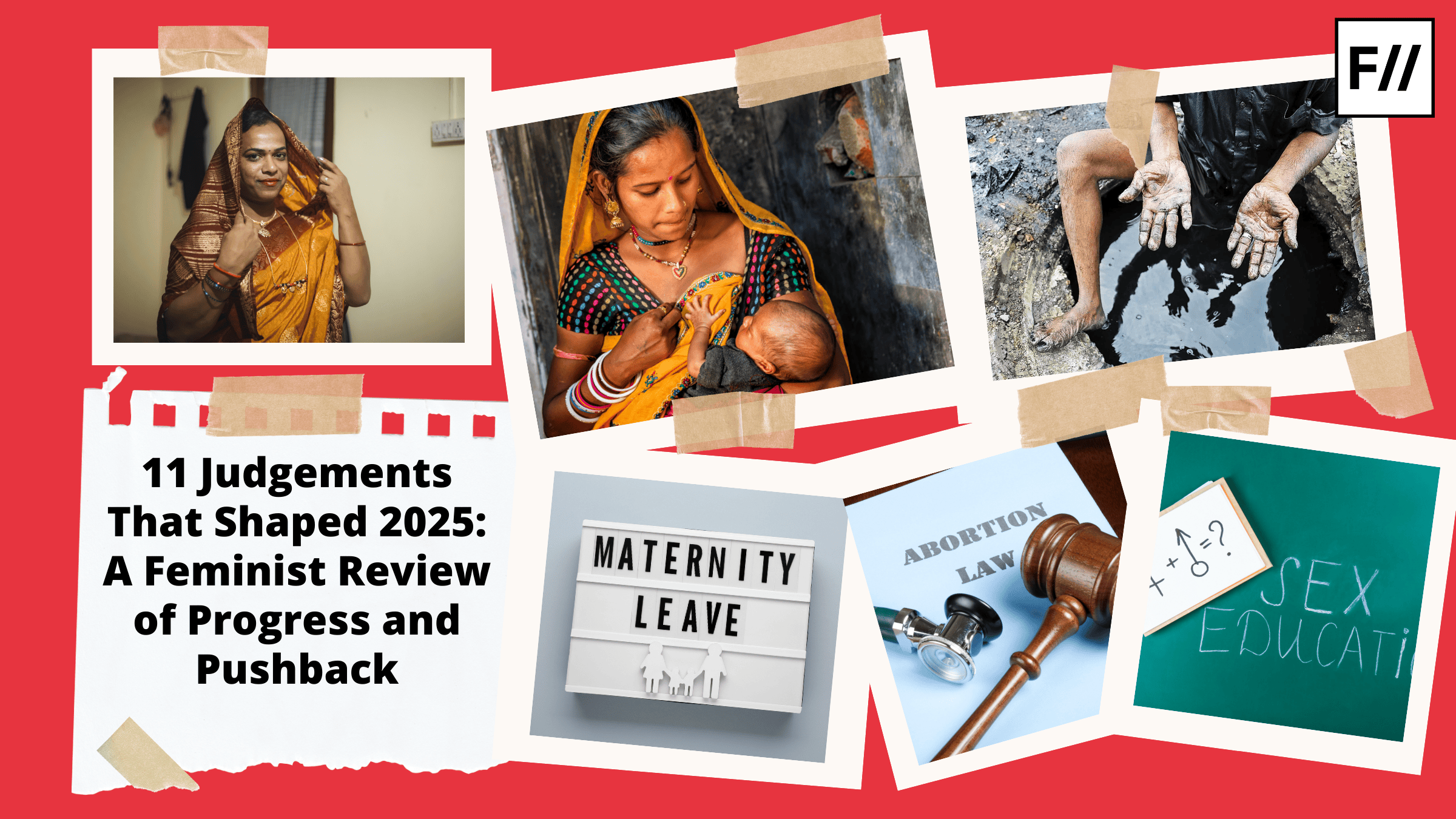One of the benchmarks of a truly egalitarian society or one that’s progressing towards the idea is a steady and reliable system of justice. Indeed, when the welfare of the citizenry is embroiled in a political tussle of the dominant groups of society, it is the justice system which anchors the democratic spirit. In contemporary India, the prevalence of Khap Panchayats that dot villages and non-urban areas create a dangerous threat to the stability of the regular tiers of the justice system.
The advent of the Khap Panchayats
While the introduction of the Khap Panchayats can be traced back to the 14th century, much of the clout they hold today comes from the exceptional reliance people placed on them during British Raj. Even after India severed ties with the British, there was still enough room for the expansion of the Panchayati Raj, so to speak.
Khaps are traditionally a group of villages organised by caste and geography. Village elders gather regularly and form quasi-judicial bodies to deliberate upon day-to-day civil matters, such as marriage, non-payment of debt, property concerns and the non-observance of social customs specific to that particular Khap.
There is largely no rule of law followed in handing out decisions or meting out punishments, the latter of which generally includes fines, flogging, ostracising errant members or harsher forms of corporeal punishment. Justice is served according to the communal interest and according to the parochial values that shape the so-called honour of the village community.
Khap Panchayats are extra-constitutional and do not fall in with the Gram Panchayat structure which is based on democratically conducted elections and finds constitutional support with the Constitution (73rd Amendment) Act, 1996. While the incidence of Khap Panchayats may find some defence in terms of being a quicker means of delivering justice or being more socially in tune with the needs of the people, Khap Panchayats have no judicial backing for their function.
There is largely no rule of law followed in handing out decisions or meting out punishments.
By existing beyond the means of judicial hierarchy, Khap Panchayats have morphed into watchdogs of communal honour and custom, usually to the detriment of non-dominant classes of people who are routinely excluded from their narrative. Women, in particular, find themselves not only victimized by the inequality of the Khap Panchayati verdict but also as unnecessary collateral to them.
When Khap Panchayats pass orders on questions of marriage, fraternization or other choices which are fundamentally libertarian in nature, they tilt the full weight of their social significance behind these verdicts nullifying any semblance of choice, independence or autonomy that women have.
Where the Khaps Regularly Go Wrong
The first significant problem with the Khap Panchayats is their being the guardians of communal honour. This belief in having to protect the honour of the village and its men by jealously guarding the virtue of women places women as mere pawns of familial pride where one can be exchanged for another.
Needless to say, such a weighing scale in itself is faulty, let alone a reliable system of justice delivery by any means. The honour hoax buttresses the pre-existing attitude that a woman’s virtue is an effective barter and her silence a sign of fairness and equality. The Supreme Court of India recently decreed, in hearing a writ petition filed by the NGO Shakti Vahini for the prevention of honour crimes, young adults had complete freedom in picking a spouse of their choice without the interference of their family members, village elders and certainly without the threats of Khap Panchayats.
This comes against a bloody backdrop of Khap Panchayat orders which call for the stoning, flogging or beating of couples who didn’t subscribe to the Khap mandated norms of marriage. The courts of Haryana and Uttar Pradesh have often found themselves at the heart of the Khap dilemma, punishing individuals who followed the orders of the self-styled Khap Panchayats – attacked or killed couples who married outside their caste or eloped.
Also Read: My Life Your Honour?: On Women’s Bodies, ‘Safety’ And Honour
Elaborating upon their order, the Supreme Court forewarned the Khap Panchayats of acting like the conscience-keepers of society. In a similar judgment in 2011, Justice Markandey Katju (now retired) echoed a similar sentiment, where he remarked that there was no honour in honour killings and they were, in fact, barbaric and shameful.
Despite the repeated ire of the Supreme Court and the intermittent warnings issued to Khap Panchayats for overstepping their boundaries, the recent Supreme Court order in the Shakti Vahini petition only served to incense the Khap Panchayat leaders further. Khap Panchayat leaders took to railing against individual liberty or free choice that the Supreme Court was protecting.
This precedent of actively dismissing judicial rulings is not new. Following the brutal murder of an inter-caste couple by the wife’s relatives, a Karnal Court sentenced five of the six accused to death, which incited disturbing declarations of solidarity from the local Khap Panchayats with the accused. Cut to the recent Supreme Court order, where the heads of local Khap Panchayats threatened the Court from unnecessarily interfering with their customs by aborting female children altogether.
This disturbing pattern of incidents points to the immunity that Khap Panchayats derive from the sheer political and social clout they shroud themselves in. This doesn’t just stem from a communal sense of outdated customs and deteriorating traditions; it develops every single day with the complicity that law enforcement, politicians, local goons and public support share in elevating Khap Panchayats to the pedestal they do not deserve.
Even in the judgment, the Supreme Court was quick to clarify that the legality of Khap Panchayats was not under consideration. We are still a long way off from banning the idea of Khap Panchayats as a whole. This is because Khap Panchayats are a consolidated epicentre of power in a non-urban area. Political parties draw support in swelling numbers by pandering to the communal interests of these Khap Panchayats, or at the very least, by simply staying out of the way.
heads of local Khap Panchayats threatened the Court from interfering by promising to abort female children altogether.
Even with governmental efforts to bring more women into political participation in local Gram Panchayats, Khap Panchayats ensure that women remain nominal heads, as mere names on paper while their husbands, fathers and brothers control the reigns as the de facto sarpanch of the village. By vetoing women’s rights to marry, live independently or participate in the community, Khap Panchayats illegally and unconstitutionally wrest control to the detriment of women.
The necessity of banning Khap Panchayats
Khap Panchayats represent the twisted social elements that genuinely and effectively prevent women from living with dignity and autonomy. The Supreme Court has declared that the sprouting of Khap Panchayats as kangaroo courts is wholly illegal, but that hasn’t spurred any action against them.
Admittedly, the political and social elements of banning Khap Panchayats as a whole are immense and in every corner of the country where they thrive, they enjoy significant support by those in some kind of power or the other. However, this can’t overshadow the abhorrent treatment of women that Khap Panchayats mete out or the flagrant disregard they hold for individual liberty as a whole.
In textbook cases of Khap mandated honour killings, retributive rapes or female foeticide, the police is encouraged to botch up the investigation or relegate it under a towering pile of paperwork. Politicians continue to turn a blind eye to Khap Panchayats that decree inhuman orders while simultaneously commiserating with victims of targeted killing. Khap Panchayats do enjoy popular support of the people itself who believe that Khap Panchayats are far more involved with their daily lives than a parliament sitting in a city or a court practising constitutional principles.
The curse of the Khap Panchayats
The Indian women’s liberation movement is incomplete without addressing the issues of women from all intersectional ties of the country – a major part of which happen to be women from non-urban areas and non-dominant communities. Their struggle in itself is incomplete without eradicating the power Khap Panchayats wield over their lives. No matter how close India’s cities may be to riding the fourth wave of feminism, the collective liberation of women is impracticable without women in non-urban areas being able to make basic choices about their lives.
Also Read: 10 Effective Ways In Which You Could Avoid Molestation And Rape
Featured Image Credit: The Hindu
About the author(s)
Nose in a book. Head in the clouds. And a plethora of other commonplace phrases.




